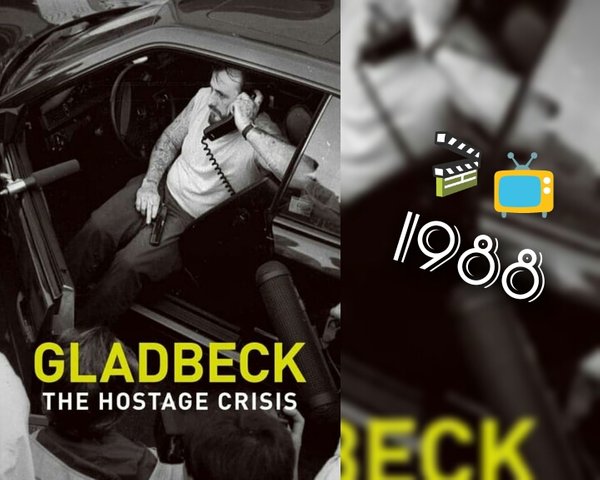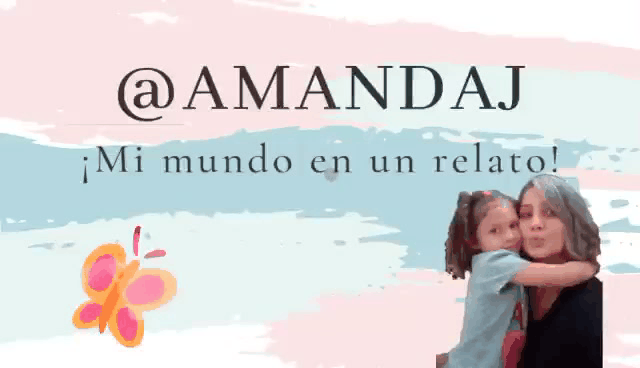Gladbeck: El drama de los rehenes|Reseña y Opinión [ESP-ENG]

Gladbeck es un documental de 2022, basado en el drama de un secuestro que sufren rehenes después de asaltar un banco en Alemania. El director, Volker Heise, supo alinear las imágenes y tiempo de lo ocurrido sin ningún narrador e investigador, los vídeos hablan por sí; un documental diferente que expone el objeto del problema, el poco profesionalismo de la autoridad y de los medios de comunicación. La cruda verdad del drama real que al parecer los televidentes les agrada, un comportamiento social morboso que desde mi perspectiva se mantiene vivo.
Experiencing a real event through film is a special feeling to understand the verifiable facts. There are several styles of presenting a real situation in cinematography and one is to document the information to the audience interested in learning the circumstance of the outcome. Documentaries are valuable and the director decides how to artistically recreate the situation to share and digest the information. I have seen different types of documentaries, but Gladbeck was built on archived visual data, made up of images and impactful argument that invite reflection under the gaze of wonder and discomfort of the drama.
Gladbeck is a documentary from 2022, based on the drama of a kidnapping of hostages after a bank robbery in Germany. The director, Volker Heise, knew how to align the images and time of what happened without any narrator and investigator, the videos speak for themselves; a different documentary that exposes the object of the problem, the unprofessionalism of the authority and media. The raw truth of the real drama that apparently the viewers like, a morbid social behavior that from my perspective is kept alive.

El documental Gladbeck es realmente un archivo histórico sobre la conducta de tres entidades que protagonizan un problema social grave, es decir, una policía desorientada en resolver el conflicto; medios de comunicación sin principios y delincuentes poderosos. Un secuestro de 54 horas de angustia, donde por supuesto el respeto hacia la autoridad y a las vidas de los secuestrados no existe. El documental Gladbeck es la compilación de información almacenada, que armó la historia de 1988 y te catapulta a esa época para vivir la tensión del secuestro; aspecto que me impresionó porque te adaptas a experimentar sensaciones por medio de la baja calidad de resolución de video, hizo que viviera el drama como si estuviese sucediendo en ese instante. Tuve que recordar que la proyección pinta la desgracia de los menos favorecidos del secuestro de 1988, los rehenes de Gladbeck.
Llegué a sentir indignación por los límites que cruza el periodismo para obtener la noticia, comportamiento que no se aleja de la realidad actual; pero en ese contexto dramático, gozaban de control y hasta una posible amistad con los secuestradores para conseguir a toda costa una entrevista, sin importar la vida de los rehenes y la propia. La cinematografía devela antisociales que poseen expedientes y se muestran intocables, quienes menosprecian la vida, porque la misma no tiene sentido y se refugian en las drogas y el delinquir. Otro rasgo del documental, te comprime el tiempo, pero te hace sentir las horas de secuestro en los diferentes lugares de traslado aleatorios; desde el principio te embarcas en el drama, te agotas y deseas que termine.
The documentary Gladbeck is really a historical archive on the behavior of three entities that are the protagonists of a serious social problem, i.e., a police disoriented in resolving the conflict, an unprincipled media and powerful criminals. A kidnapping of 54 hours of anguish, where of course respect for authority and the lives of the kidnapped does not exist. The Gladbeck documentary is the compilation of stored information, which put together the story of 1988 and catapults you to that time to live the tension of the kidnapping; an aspect that impressed me because you adapt to experience sensations through the low quality of video resolution, made me live the drama as if it was happening at that moment. I had to remember that the projection paints the misfortune of the underdogs of the 1988 hijacking, the Gladbeck hostages.
I came to feel indignation for the limits that journalism crosses to get the news, behavior that is not far from the current reality; but in that dramatic context, they enjoyed control and even a possible friendship with the kidnappers to get an interview at all costs, regardless of the lives of the hostages and their own. The cinematography reveals antisocials who have files and are untouchable, who despise life because it has no meaning and take refuge in drugs and crime. Another feature of the documentary, it compresses time, but makes you feel the hours of kidnapping in the different random places of transfer; from the beginning you embark on the drama, you get exhausted and wish it would end.

Como en la mayoría de los secuestros, hay peticiones de los captores y la investigación policial, en este caso toman medidas débiles, por tanto, los villanos se salen con la suya y el periodismo le da mayor poder a los perpetradores. El periodismo critica el sadismo de los criminales, no obstante, transmiten en primera plana el espectáculo, es la prioridad. La libertad es requerida, junto al tesoro solicitado y rehenes que protejan la vida perdida, porque los captores saben el destino, solo extienden las horas; la policía responde a las demandas, una tras otras, como sacada de una película. El documental revela las características del suceso mencionado y también le suma las emociones enmarcadas en escenas dramáticas congeladas, dibujando episodios sombríos que navegan en el silencio "tranquilo" de la preocupación.
La mente criminal es retratada en la proyección visual de Gladbeck. La forma de hablar, los argumentos y emociones de los malvados con armas en mano a merced del agotamiento. Los disparos son advertencias y promesas; observar rehenes de diferentes edades que sucumben de miedo y resignación sobre el camino incierto, compuesto de días y de noches, sin saber qué depara el futuro del rescate. El documental cuenta cómo cambia el secuestro en las últimas horas, hay nuevas exigencias, nuevos resultados y todo captado por las cámaras. La fuerza policial necesitas ser más cautelosa porque los agresores continúan, pero con mayor fatiga, se respira una atmósfera diferente en el film, el final Gladbeck es triste y nunca el periodismo dejó de atestiguar el evento a la población curiosa y al grupo de ciudadanos que reprueban la "justicia" policial.
As in most kidnappings, there are requests from the captors and the police investigation, in this case they take weak measures, therefore, the villains get away with it and journalism gives more power to the perpetrators. Journalism criticizes the sadism of the criminals, however, they broadcast the spectacle on the front page, it is the priority. Freedom is demanded, along with the treasure requested and hostages to protect the lost life, because the captors know the destination, they only extend the hours; the police respond to the demands, one after the other, like something out of a movie. The documentary reveals the characteristics of the aforementioned event and also adds emotions framed in frozen dramatic scenes, drawing somber episodes that navigate in the "calm" silence of worry.
The criminal mind is portrayed in Gladbeck's visual projection. The way of speaking, the arguments and emotions of the evildoers with guns in hand at the mercy of exhaustion. The shots are warnings and promises; observe hostages of different ages who succumb to fear and resignation on the uncertain path, composed of days and nights, not knowing what the future holds for the ransom. The documentary tells how the kidnapping changes in the last hours, there are new demands, new results and everything captured on camera. The police force needs to be more cautious because the aggressors continue, but with greater fatigue, a different atmosphere is breathed in the film, the end Gladbeck is sad and never journalism failed to witness the event to the curious population and the group of citizens who rebuke the police "justice".
Why should I watch Gladbeck? If you like the documentary that recreates the linear kidnapping and full of periplos to get free, it is for you; but if you are willing to endure the drama of being a spectator of the kidnapping that lasts 1:30 and suffer exhaustion and injustice, you need to think about it. On the other hand, the director invites you to reflect on the role of the media that hinder the investigation. Also the film, serves to opine on the dysfunctional and bizarre mind of criminals who are strengthened, because the media gives them prominence and empathy, from my position something unpleasant. Finally, you will find real scenes and images, which outline the lack of principles, others with strong episodes and dehumanized moments, because the documentary Gladbeck is the organization of a compendium of archive and chronicle on the fact of the drama of the hostages, the least considered the tragedy.

Un comentario equivale un acto de reconocimiento


Soy miembro de @motherhood



Las publicaciones elaboradas en mi blog son realizadas desde un móvil Noblex modelo 551
On, I really like this kind of documentaries. I'll write it down to look for it. I didn't know anything about this documentary, with so much on offer on streaming platforms, there are many things I miss. Thanks for bringing this kind of productions. Bookmarking it to watch with two other documentaries I have on my list.
I invite you to visit the community feed where you will find other cinephiles sharing their movie and series posts, so you can interact with them by leaving a comment. It is important to interact in the communities where you post.
Hello, @jcrodriguez
Happy you add to your list this projection, it is a pearl of the absurdity of journalism when used against. On the other hand, you are right to interact, I will do it more often, I will look for a gap and support to grow during other days where I do not public.
Thanks!
Excelente reseña amiga @amandaj una excelente recomendación para verla y reflexionar sobre este tema una realidad que muchas veces dejamos de lado👍
Gracias, amiga. Espero que te guste
Sin duda, es un documental interesante. Me gusta cómo lo presentas y la calidad de tu redacción. Gracias por compartir, ya tengo algo más para ver esta semana.
Saludos!
Hola, @juniorgomez
Gracias por tus palabras y espero tengas la oportunidad de ver el documental.